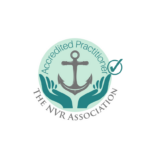A Contract for NVR Supervision, provided by Margaret Gilbert Life and Parent Coach and NVR supervisor @changingtracks4life
- Purpose The purpose of our NVR supervision is to enhance the practice of clinicians working with the principles of Non-Violent Resistance.
2. Structure
- We will meet as agreed when entering the coaching agreement.
- Sessions 75 minutes in duration. Group sessions 2 hours (6-8) participants.
- Supervisees are encouraged to keep their own notes of the sessions.
- Cancellation policy:
- Once the coaching dates are set it is the responsibility of the coach and coachee to make sure they are available to attend all sessions.
- Rescheduling will only be considered in the event of extenuating circumstances. Full payment will be charged for missed/rescheduled appointments unless agreed otherwise in advance of the appointment (not less than 24 hours’ notice).
4. Confidentiality:
- The supervisor recognises that anything the Client/Supervisee shares with them is regarded as confidential.
- The supervisor will not disclose the Client/Supervisee information unless failure to disclose would be in breach of Our Duty of Care obligation, Child Protection Legislation, Vulnerable Persons Legislation or support a criminal act.
- If your organisation has commissioned/paid for the supervision, they will be given data re: attendance/non-attendance/cancellations/receipts for sessions. Contents of the session will be confidential with the exception of Child Protection or Protection of Vulnerable Adults or support of a criminal act.
- Data Protection: All information will be kept in compliance with the relevant Data Protection Legislation in Ireland. 5. Safe Guarding:
- Child protection/Designated Officer. Although it is very rare that a concern in respect of Child Protection or the Protection of Vulnerable Adults comes to the attention of the Supervisor during the session I will advise and support making a Child Protection/Vulnerable Persons report to Tusla/HSE.
- In the event it was deemed necessary we are obligated to report the concern to Tusla/HSE.
- The concerns would be, discussed with you the Supervisee/Employer prior to forwarding any report.
6. Supervisees’ responsibility
- Adhere to the policies and practices of their own professional bodies and registrations, noting that clinical responsibility for practice lies with the supervisee and their employing organisation.
- The client is solely responsible for creating and implementing his/her own physical mental and emotional wellbeing, decisions, choices, actions, and results arising out of or resulting from the supervision relationship and his/her coaching calls and interactions with the supervisor.
- As such the client agrees that the Supervisor is not and will not be liable or responsible for any actions or inactions or for any direct or indirect result of any services provided by the supervisor.
- Highlight own learning needs during the life of the group supervision
- Explore a range of learning opportunities and styles
- Practice the skill of self-reflexivity and relational reflexivity i.e., acknowledge own development and needs and respond thoughtfully to feedback from other team members and the supervisor.
- Explore areas of difference and diversity and how aspects of our own lived experience can affect our work.
7. Responsibility of the Supervisor
- Adhere to ethical coaching practices as defined by governing body ICF Code of Ethics and Practice for coaches.
- Provide a range of learning opportunities to meet the agreed learning needs of the supervisee. Share acquired skills, knowledge and theory with the supervisee and be transparent about own learning needs within the supervisory relationship, hence modelling vulnerability by being willing to discuss their own therapeutic dilemmas.
- Create a space that is safe enough for the supervisee to disclose issues that may involve vulnerability, and to manage that together.
- Provide a range of methods to feedback on the supervisees’ development e.g., constructive feedback; micro points; feedback from other team members; self-reflexive evaluation.
- Share with supervisees how aspects of difference and diversity affect the supervisor’s work as a clinician and supervisor.
- Encourage challenge and questions about aspects of the work together.
- Distinguish boundaries between clinical supervision and personal therapy.
- Be clear about the limitations of responsibility of the supervisor, for example, knowing when a solution is not found, and simply ‘sitting with stuckness’ may be required, and knowing when NVR may have achieved all that is possible in the circumstances prevailing at the point in time.
8. Review of Contract
- The contract is open to review at any point during the supervisory relationship.
- Any tensions between the supervisee and supervisor should be discussed within the process of supervision
9. Additional responsibilities when supervision takes place online, for both supervisor and supervisees
- To arrive for supervision dressed for a professional conversation in a space which is as free from distraction as possible. The space used should be suitable for a confidential conversation, without interruption. If a phone call needs to be taken, due to personal or professional responsibilities, the other parties will be informed in advance.




